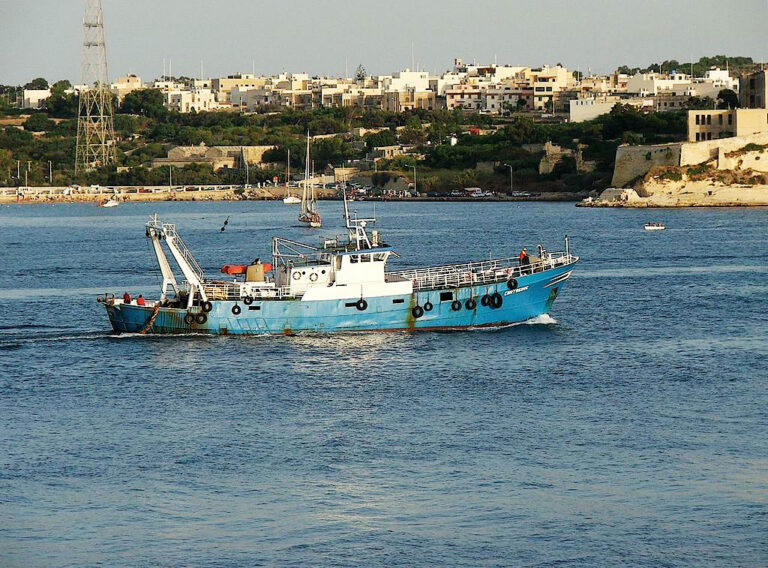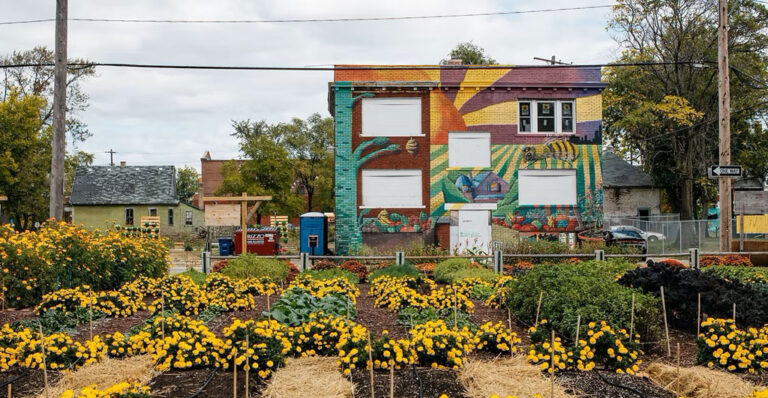Newsletter – January 2020
PRESIDENT’S COLUMN
The Publishing Paradox or How the Publishing Model May be Broken
By David Kaplan
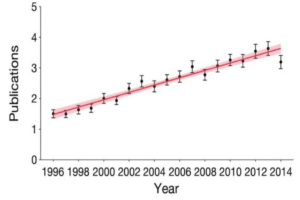
Among the familiar litany of New Year’s resolutions, many of you may have promised yourselves that 2020 would be the year to finally finish that book or write that article. In other words: to PUBLISH. Publishing is a huge part of academic life, the coin of the realm… Fast forward to our day. Rare is the PhD who lands a job without a CV listing several publications. And institutions of all stripes demand a quiver of accepted articles from their tenure-track hopefuls.
ANNUAL MEETING
2020 Preliminary Program Now Available Online
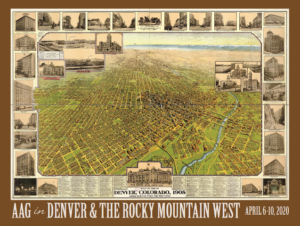
The #aagDENVER preliminary program is ready to view online. Search the schedule by author name, session type, key words, author affiliation, specialty group sponsorship, and more. For those presenting posters, the poster presentations will take place April 7, 8, and 9, 2020.
There’s Plenty to Explore in the Denver Area
 From kid-friendly activities to multicultural attractions, there is a wide variety of spaces and places to investigate in Denver, Colorado during your downtime at the 2020 AAG Annual Meeting. Denver Convention Services has curated a website for #aagDENVER attendees with a list of innovative restaurants, local culture and arts sites, and transportation information to get AAG members excited for a trip to the Mile High City!
From kid-friendly activities to multicultural attractions, there is a wide variety of spaces and places to investigate in Denver, Colorado during your downtime at the 2020 AAG Annual Meeting. Denver Convention Services has curated a website for #aagDENVER attendees with a list of innovative restaurants, local culture and arts sites, and transportation information to get AAG members excited for a trip to the Mile High City!
Career Mentors Needed for #aagDENVER
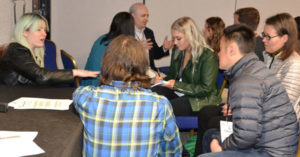
The advice of a mentor can be instrumental in preparing young geographers for success in today’s competitive job market. The AAG seeks professional geographers representing the business, government, nonprofit and academic sectors to serve as volunteer Career Mentors during the 2020 AAG Annual Meeting in Denver, CO. During sessions held each morning of the conference, mentors will answer questions and provide general career advice to students and job seekers interested in learning more about industries that employ geographers, the work geographers perform and strategies for getting into the field. For additional questions and to volunteer, please contact Mark Revell at the AAG.
More information about the Jobs & Careers Center.
Poster abstracts for #aagDENVER due January 31!
Present a poster at the 2020 AAG Annual Meeting. As soon as your poster is ready, upload the electronic file to our Poster Portal so it can be viewed online well before and beyond your presentation session. In addition, the AAG has set up printing partnerships for discounts on paper poster printing to help you save.
- Register for the 2020 AAG Annual Meeting
- Decide which presentation type is right for you
- Book your hotel room in one of two hotels with an AAG attendee discounted rate
- Find out how to travel to meeting hotels by air or rail
- Suggest potential workshops or field trips by submitting a proposal
PUBLICATIONS
NEW GeoHumanities Issue Alert:
Articles with topics ranging from climate change to anti-colonialism to embodied field research
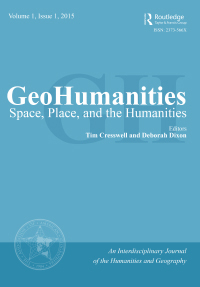 The most recent issue of GeoHumanities has been published online (Volume 5, Issue 2, December 2019) with 18 new research articles and creative pieces on subjects within geography including a Forum on Auto-Methods in Feminist Geography. Article topics in this issue include auto-methods, homelessness, sexism, Brexit, Nepali identity, religion and hazards, and human-water interactions. Articles also explore mediums such as stage plays, story telling, collective walking, memes, scents, and photography. Authors are from a variety of research institutions including University of Victoria, Kent State University, King’s College London, University of New South Wales, and Keele University.
The most recent issue of GeoHumanities has been published online (Volume 5, Issue 2, December 2019) with 18 new research articles and creative pieces on subjects within geography including a Forum on Auto-Methods in Feminist Geography. Article topics in this issue include auto-methods, homelessness, sexism, Brexit, Nepali identity, religion and hazards, and human-water interactions. Articles also explore mediums such as stage plays, story telling, collective walking, memes, scents, and photography. Authors are from a variety of research institutions including University of Victoria, Kent State University, King’s College London, University of New South Wales, and Keele University.
All AAG members have full online access to all issues of GeoHumanities through the Members Only page. In every issue, the editors choose one article to make freely available. In this issue you can read Adding Spatial Context to the April 17, 1975 Evacuation of Phnom Penh: How Spatial Video Geonarratives Can Geographically Enrich Genocide Testimony by Andrew Curtis, James Tyner, Jayakrishnan Ajayakumar, Sokvisal Kimsroy & Kok-Chhay Ly for free.
Questions about GeoHumanities? Contact geohumanities [at] aag [dot] org.
NEW Annals Alert: Articles with topics ranging from resource frontiers to low-carbon landscape, time geography to primary health care
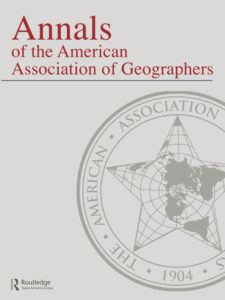 The most recent issue of the Annals of the AAG has been published online (Volume 110, Issue 1, January 2020) with 17 new research articles on contemporary geographic research. Topics in this issue include alpine treelines, offshore wind farms, visual storytelling, oak savannas, sustainable development, the spatial fix, transboundary commons, and cartographically visualizing tornadoes. Locational areas of interest include Israel and Palestine, New York City, the Sonoran Desert, Kenya, and Florida’s Lake Okeechobee. Authors are from a variety of research institutions including University of Georgia, University of Gothenburg, University of Chicago, and University of Illinois.
The most recent issue of the Annals of the AAG has been published online (Volume 110, Issue 1, January 2020) with 17 new research articles on contemporary geographic research. Topics in this issue include alpine treelines, offshore wind farms, visual storytelling, oak savannas, sustainable development, the spatial fix, transboundary commons, and cartographically visualizing tornadoes. Locational areas of interest include Israel and Palestine, New York City, the Sonoran Desert, Kenya, and Florida’s Lake Okeechobee. Authors are from a variety of research institutions including University of Georgia, University of Gothenburg, University of Chicago, and University of Illinois.
All AAG members have full online access to all issues of the Annals through the Members Only page. Each issue, the Editors choose one article to make freely available. In this issue you can read Assessing Social Vulnerability through a Local Lens: An Integrated Geovisual Approach by David S. Rickless, Xiaobai A. Yao, Brian Orland & Meredith Welch-Devine for free for the next two months.
Questions about the Annals? Contact annals [at] aag [dot] org.
 In addition to the most recently published journal, read the latest issue of the other AAG journals online:
In addition to the most recently published journal, read the latest issue of the other AAG journals online:
• Annals of the American Association of Geographers
• The Professional Geographer
• GeoHumanities
• The AAG Review of Books
New Books in Geography — November Available
 Read the latest titles in geography and related disciplines as found on the New Books in Geography list. Some of these books will be reviewed in The AAG Review of Books. The editors of The AAG Review of Books are happy to receive suggestions for potential reviews and potential reviewers. Reviews are commissioned by the editors, based on the appropriateness and qualifications of the reviewer, observing the usual avoidances of conflict of interest. Persons wishing to volunteer their reviewing services should have the requisite qualifications and demonstrable prior knowledge and engagement with the subject area, preferably through publications. Please contact the editors at aagrb [at] lsu [dot] edu.
Read the latest titles in geography and related disciplines as found on the New Books in Geography list. Some of these books will be reviewed in The AAG Review of Books. The editors of The AAG Review of Books are happy to receive suggestions for potential reviews and potential reviewers. Reviews are commissioned by the editors, based on the appropriateness and qualifications of the reviewer, observing the usual avoidances of conflict of interest. Persons wishing to volunteer their reviewing services should have the requisite qualifications and demonstrable prior knowledge and engagement with the subject area, preferably through publications. Please contact the editors at aagrb [at] lsu [dot] edu.
Browse the full list of new books.
ASSOCIATION NEWS
AAG is Proud to Announce the First Round of 2020 AAG Awards
 The American Association of Geographers congratulates the individuals and entities named to receive an AAG Award. The awardees represent outstanding contributions to and accomplishments in the geographic field. Formal recognition of the awardees will occur at the 2020 AAG Annual Meeting in Denver, CO during the AAG Awards Luncheon on Friday, April 10, 2020.
The American Association of Geographers congratulates the individuals and entities named to receive an AAG Award. The awardees represent outstanding contributions to and accomplishments in the geographic field. Formal recognition of the awardees will occur at the 2020 AAG Annual Meeting in Denver, CO during the AAG Awards Luncheon on Friday, April 10, 2020.
AAG Welcomes New Annals Editors, Thanks Leaving Editors
 The AAG announces two new editors to the Annals of the American Association of Geographers – Kendra Strauss who will be taking over for Human Geography Editor Nik Heynen and Katie Meehan who will assume the role of Nature & Society Editor as James McCarthy’s term ends. The AAG would like to thank Nik Heynen and James McCarthy for their years of service while congratulating Kendra Strauss and Katie Meehan.
The AAG announces two new editors to the Annals of the American Association of Geographers – Kendra Strauss who will be taking over for Human Geography Editor Nik Heynen and Katie Meehan who will assume the role of Nature & Society Editor as James McCarthy’s term ends. The AAG would like to thank Nik Heynen and James McCarthy for their years of service while congratulating Kendra Strauss and Katie Meehan.
Get ready for the 2020 AAG Election

The AAG election will be conducted online again, and voting will take place January 8-30, 2020. Each member who has an email address on record with the AAG will receive a special email with a code that will allow them to sign in to our AAG SimplyVoting website and vote. It’s important to update your email address in your AAG account to ensure you receive the email ballot. The 2020 election slate is published online.
Environmental Governance in a Populist/Authoritarian Era Published
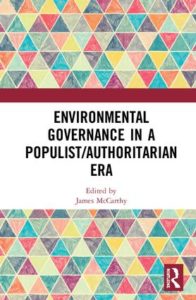
The 2019 Special Issue of the Annals of the American Association of Geographers has been published as an edited volume by Routledge Taylor and Francis. The volume, edited by Annals Nature & Society editor James McCarthy, is divided into six parts that explore the interconnections between the recent rise of authoritarian governments worldwide and government relations to the environment and environmental policy. Originally published in March 2019 as volume 109, issue 2 of the Annals, it can now be purchased online.
POLICY CORNER
ESSA Turns Four Years Old
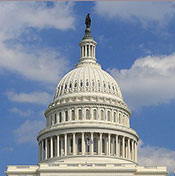 Last month marked the four year anniversary of President Obama signing into law the Every Student Succeeds Act (ESSA). Replacing the No Child Left Behind Act of 2002, the ESSA overhauled the nation’s K-12 education system and required much compromise from lawmakers in order to improve the many shortcomings of the previous law. The final product was a bill that delegated a lot of power and decision-making back to the states. The ESSA defined the parameters and expectations under which states and their local education agencies (LEAs) could implement education processes that best fit their needs. Thanks to the hard work of the AAG and other stakeholders at that time, geography was specifically identified in several sections of the law including as a topic eligible for several grant programs and as a “core academic subject.”
Last month marked the four year anniversary of President Obama signing into law the Every Student Succeeds Act (ESSA). Replacing the No Child Left Behind Act of 2002, the ESSA overhauled the nation’s K-12 education system and required much compromise from lawmakers in order to improve the many shortcomings of the previous law. The final product was a bill that delegated a lot of power and decision-making back to the states. The ESSA defined the parameters and expectations under which states and their local education agencies (LEAs) could implement education processes that best fit their needs. Thanks to the hard work of the AAG and other stakeholders at that time, geography was specifically identified in several sections of the law including as a topic eligible for several grant programs and as a “core academic subject.”
Given the extensive effort that went into crafting the ESSA, another overhaul of the federal K-12 education structure will be unlikely in the near future. At present, Congress is more focused on putting forth a comprehensive reauthorization of the Higher Education Act and reforming the current system with a focus on college affordability. However, with the ESSA’s implementation well underway we are beginning to glean useful information from the policy’s results. As outlined in the law’s text, these results are collected by way of student assessments which serve as our strongest and most consistent indicator of success. The AAG hopes to engage further in utilizing these results to take a more critical look at improving K-12 geography education. In addition to the work currently being done within the National Center for Research in Geography Education (NCRGE), the AAG will encourage the proliferation of research using student assessment results and continue to serve as a leader in the K-12 geography education research space.
In the News:
- At the end of December Congress completed its previously delayed appropriations bills for the 2020 fiscal year and avoided the threat of a government shutdown. This final appropriations package included funding for the National Science Foundation, the National Institutes of Health, the Department of Education, and many other agencies that support crucial programs.
- The AAG will continue to track geography relevant funding measures as a new appropriations cycle is set to begin shortly. With the introduction of the President’s budget, typically released in February, the several-month negotiation process officially kicks off.
RESOURCES AND OPPORTUNITIES
Take Time Out This Summer for Professional Development
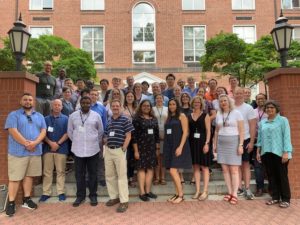
The AAG’s Geography Faculty Development Alliance (GFDA) will once again offer a valuable in-depth opportunity for early career professionals and department leaders in Geography to learn and engage during its annual workshops June 21-27, 2020, at the George Washington University in Washington, D.C. The shorter four-day workshop for department leaders (June 24-27) will overlap with the week-long conference for early career attendees providing a full career spectrum of exercises and activities.
ICPSR Provides Access to Geography-Related Data
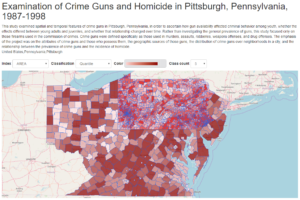 Geographers may find the data archive from the Inter-university Consortium for Political and Social Research (ICPSR) of interest. ICPSR maintains an archive of more than 250,000 research data files in the social and behavioral sciences. It hosts specialized collections related to education, aging, criminal justice, substance abuse, arts, and more. The ninety-percent that are public-use data files can be accessed and downloaded from individual study home pages.
Geographers may find the data archive from the Inter-university Consortium for Political and Social Research (ICPSR) of interest. ICPSR maintains an archive of more than 250,000 research data files in the social and behavioral sciences. It hosts specialized collections related to education, aging, criminal justice, substance abuse, arts, and more. The ninety-percent that are public-use data files can be accessed and downloaded from individual study home pages.
Learn more about this curated data source.
Visiting Geographical Scientist Program Accepting Applications from Departments
 The Visiting Geographical Scientist Program (VGSP) sponsors visits by prominent geographers to small departments or institutions that do not have the resources to bring in well-known speakers. The purpose of this program is to stimulate interest in geography, targeted for students, faculty members, and administrative officers. Participating institutions select and make arrangements with the visiting geographer. A list of pre-approved speakers is available on the website. VGSP is funded by Gamma Theta Upsilon (GTU), the international honors society for geographers.
The Visiting Geographical Scientist Program (VGSP) sponsors visits by prominent geographers to small departments or institutions that do not have the resources to bring in well-known speakers. The purpose of this program is to stimulate interest in geography, targeted for students, faculty members, and administrative officers. Participating institutions select and make arrangements with the visiting geographer. A list of pre-approved speakers is available on the website. VGSP is funded by Gamma Theta Upsilon (GTU), the international honors society for geographers.
Learn more about the program and how to apply.
IN MEMORIAM
Doug M. Amedeo
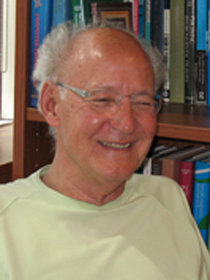
The AAG is saddened to hear of the death of Doug Amedeo, a professor emeritus of geography at the University of Nebraska – Lincoln. A prolific writer, Amedeo was a mainstay at the University of Nebraska – Lincoln since 1973, advising nearly 20 PhD students during his tenure. A veteran of the Korean War, he went on to earn a bachelor’s in economics and a master’s and doctorate in geography, focusing his research on environmental perception and behavioral geography.
The AAG is saddened to hear of the passing of several colleagues this past month with written tributes forthcoming.
- Bob Sinclair of Wayne State University
- William Graf of University of South Carolina
- Dick Lewis of Kent State University
FEATURED ARTICLES
The Value in Knowing What’s Missing
You may be aware of a couple of facts about entrepreneurship already…
- The rate of new businesses that create jobs each year is in a long-term decline.
- Entrepreneurship opportunities, resources, and outcomes vary widely by race and gender.
Collectively, these trends are concerning.
It’s difficult, but not impossible to picture a “missing generation” of businesses that were not created due to lower startup rates and the lack of accessibility to entrepreneurial resources for women and entrepreneurs of color… This is why the Entrepreneurship Research team at Kauffman is focused on answering questions based on real-world problems facing entrepreneurs and their communities.
Geospatial Brain Power

A group of researchers from six American universities are studying what effect spatial education has on the development of the spatial thinking and reasoning skills of high school students. The research team wants to find out how the students, who use GIS technology for class projects, go about solving complex reasoning problems and whether their brains are physically changing in response to spatial learning.
GEOGRAPHERS IN THE NEWS
- Craig Dalton, a professor of geography at Hofstra University, looks for maps that complicate conventional views of the world
- University of South Carolina geographer Susan Cutter notes that places such as Puerto Rico face recurring weather events that contribute to a “cycle of vulnerability”
- University of Melbourne’s Dr. Michael Fletcher recreates landscape of Aboriginal Australia
EVENTS CALENDAR
- March 18-21, 2020 – 2020 Meeting of the National Council on Public History
- April 6-10, 2020 – 2020 AAG Annual Meeting, Denver, CO
- May 8, 2020 – Climate Adaptation Research Symposium 2020: Measuring and Addressing Societal Impacts (abstracts due Jan. 31, 2020)
- June 7-11, 2020 – 2020 Symposium on Hurricane Risk in a Changing Climate

